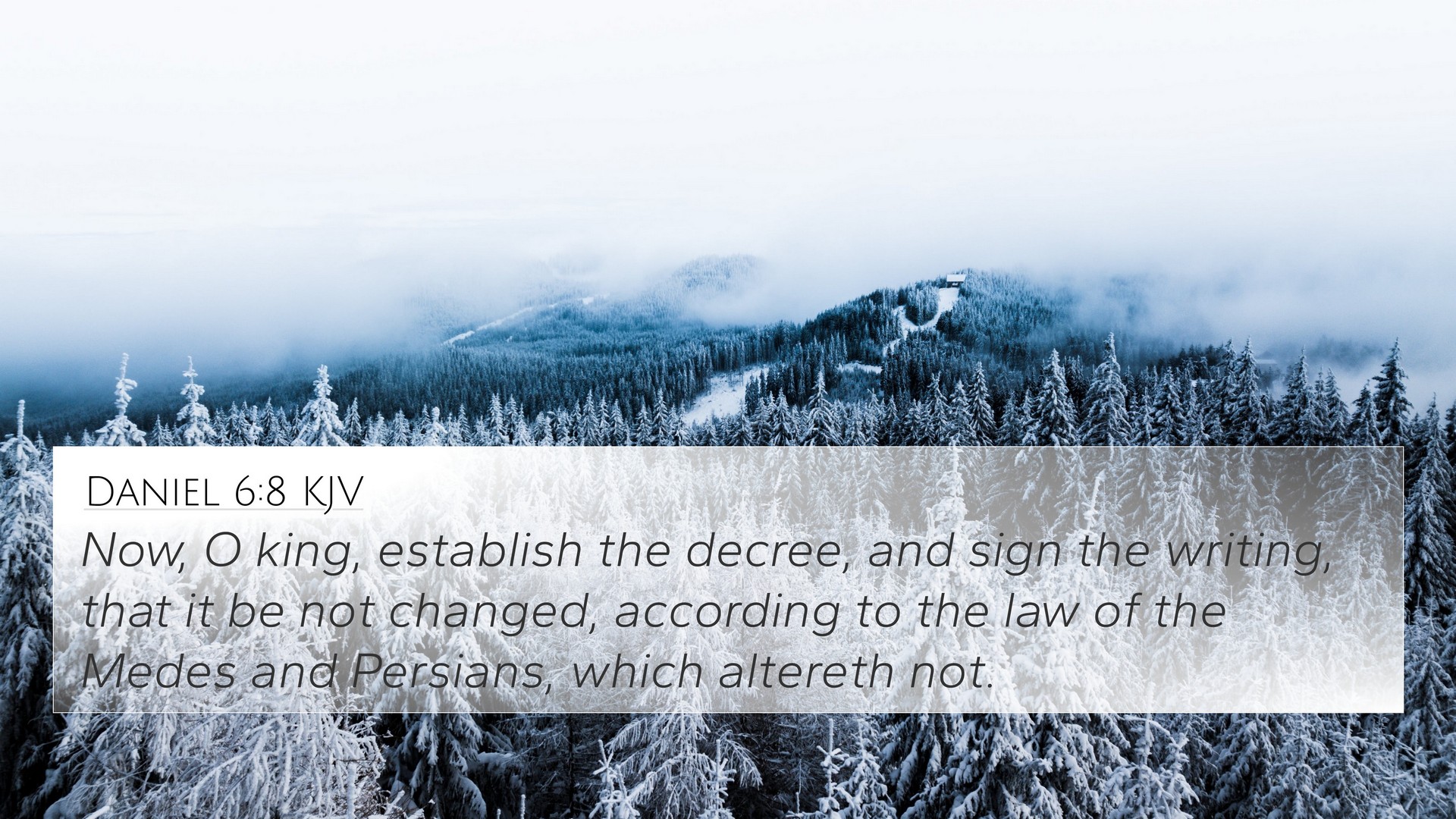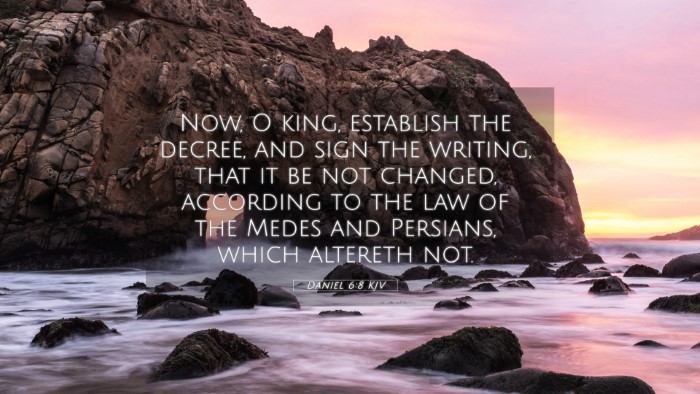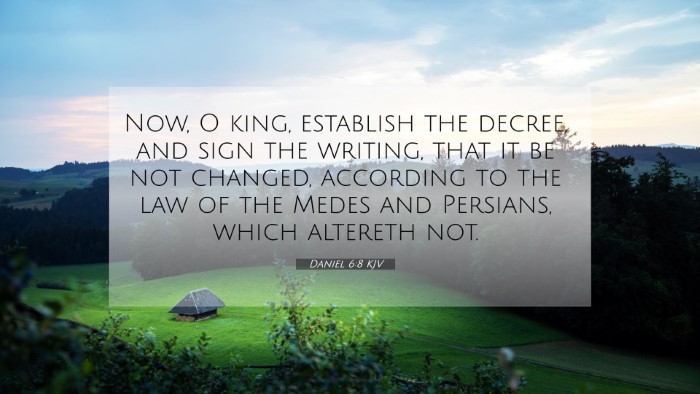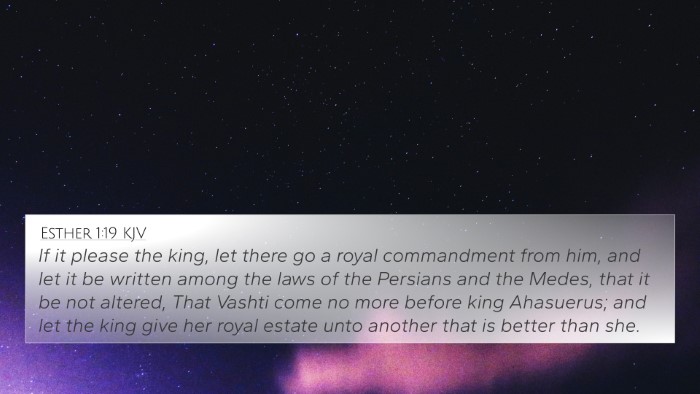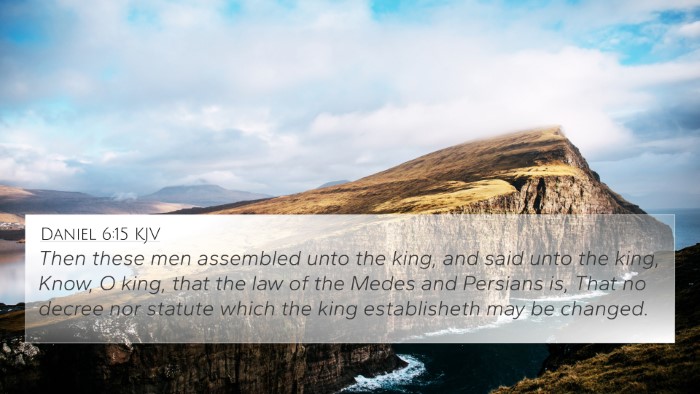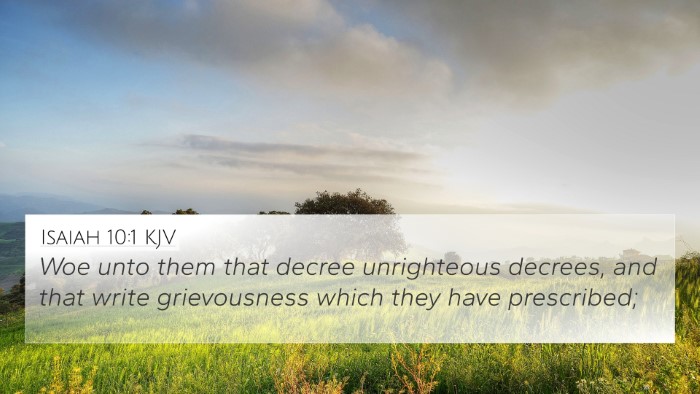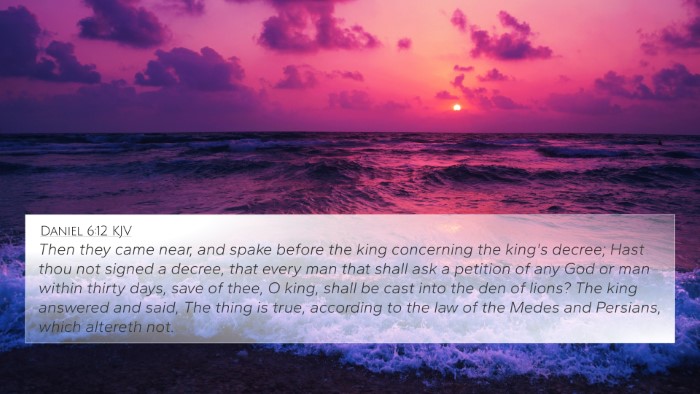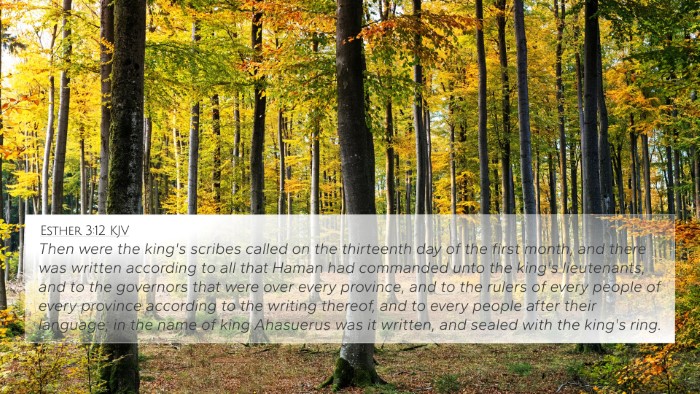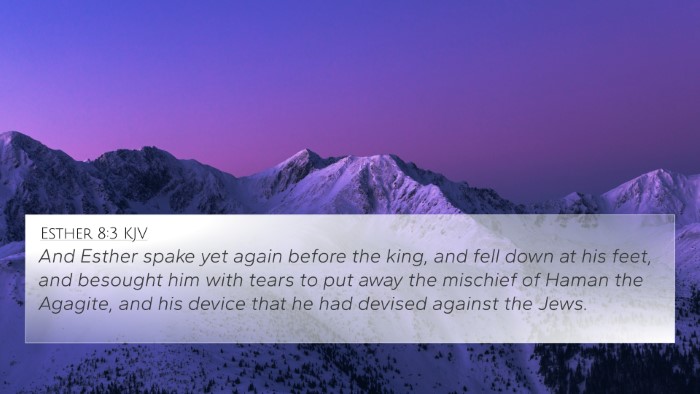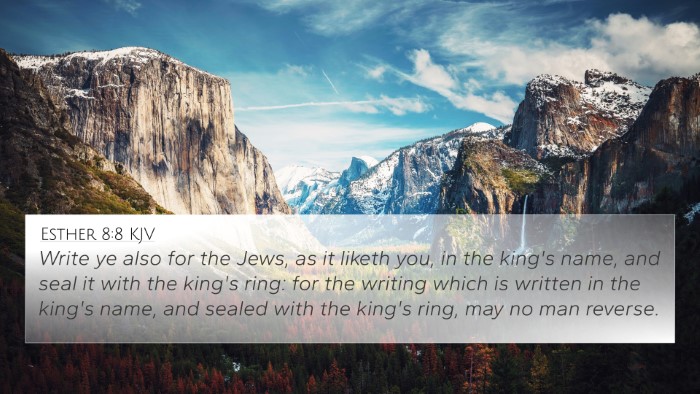Understanding Daniel 6:8
Verse: “Now, O king, establish the decree and sign the writing, that it be not changed, according to the law of the Medes and Persians, which altereth not.”
Summary of Meaning
This verse illustrates the political dynamics of the Persian Empire and the immutable nature of its decrees. The intrigue surrounding Daniel, who was distinguished among the governors, demonstrates the challenges faced by individuals in a secular environment, as well as the faith that guided Daniel’s actions.
Commentary Insights
The insights drawn from various public domain commentaries provide a deeper understanding of the implications behind this verse.
- Matthew Henry: Henry emphasizes the notion of the irrevocability of laws in the Medo-Persian context, illustrating the tension between divine intervention and human governance. He notes that the king is urged to exercise caution in his decrees as they can have far-reaching consequences.
- Albert Barnes: Barnes explains the legal tradition that the Medes and Persians followed, which upheld that once a decree was signed, it could not be changed. This highlights the significance of the decree instigated against Daniel and how it relates to his integrity and faithfulness despite the impending threat.
- Adam Clarke: Clarke reflects on the implications of the decree in relation to Daniel’s character and his unwavering commitment to prayer. He points out that Daniel’s faithfulness confronted the powers and systems around him, illustrating a profound moral lesson about standing firm in one's beliefs.
Bible Verse Cross-References
To understand the connections between Bible verses, the following cross-references emerge alongside Daniel 6:8:
- Esther 1:19: Discusses the irrevocable nature of royal decrees in the Persian kingdom.
- Proverbs 21:1: Highlights God's sovereign control over the hearts of kings and rulers.
- Romans 13:1: Teaches about submission to governing authorities as established by God.
- 1 Peter 2:13-14: Encourages believers to submit to every human authority for the Lord's sake.
- Jeremiah 29:7: Advises seeking the welfare of the city where one is exiled, emphasizing a call to live faithfully in a foreign land.
- Matthew 5:10-12: Jesus speaks about the blessings associated with persecution for righteousness’ sake, resonating with Daniel’s situation.
- Revelation 13:3: References the nature of authority and its uncompromising traits, paralleling the decree's inability to be altered.
Connections Between Bible Verses
The thematic connections between these verses relate to the ever-relevant struggle of faithfulness amidst adversity. Understanding how they interlink enhances one's comprehensive approach to scripture:
- Both Daniel 6:8 and Esther 1:19 contribute to understanding the legal structures of the Medo-Persian empire.
- Romans 13:1 and 1 Peter 2:13-14 reflect the New Testament verses that tie back to Old Testament precedents regarding governance and authority.
- Instances of persecution detailed in Matthew 5:10-12 echo the moral fortitude seen in Daniel that leads to divine deliverance.
Tools for Bible Cross-Referencing
Utilizing tools such as a Bible concordance or a Bible cross-reference guide can significantly enhance one's study.
How to Use Bible Cross-References:
- Identify themes in a verse and search for related scriptures.
- Explore possible cross-references provided in the margins of study Bibles.
- Use online Bible study tools to see how verses connect across books.
Conclusion
Daniel 6:8 serves as a powerful ethical and spiritual lesson, showing how unyielding faith can stand against oppressive systems. Understanding this verse in concert with related scriptures enhances its meaning, illustrating how the narrative interlinks with broader Biblical themes of righteousness, integrity, and divine oversight.
